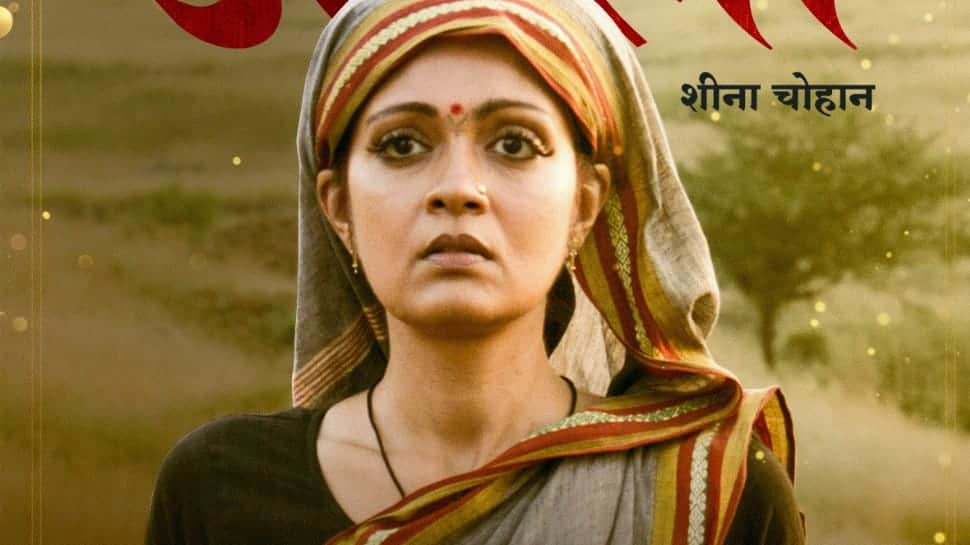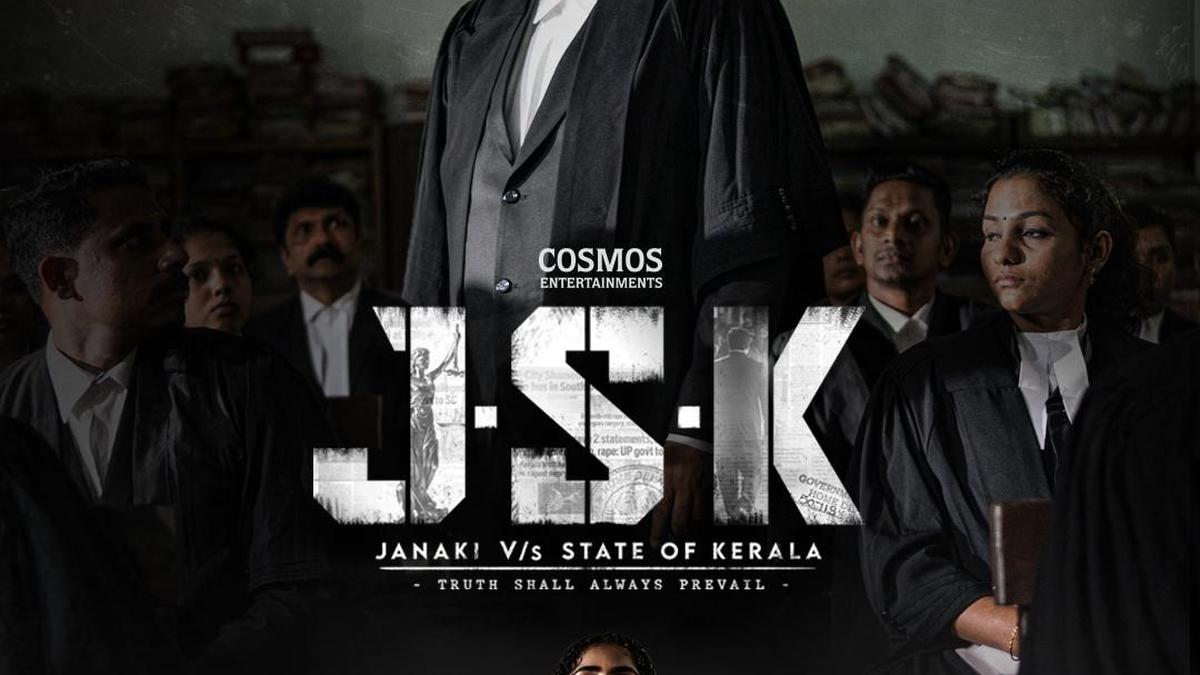Cinematographer-writer Bahul Ramesh on scripting the second season of the web series, ‘Kerala Crime Files’
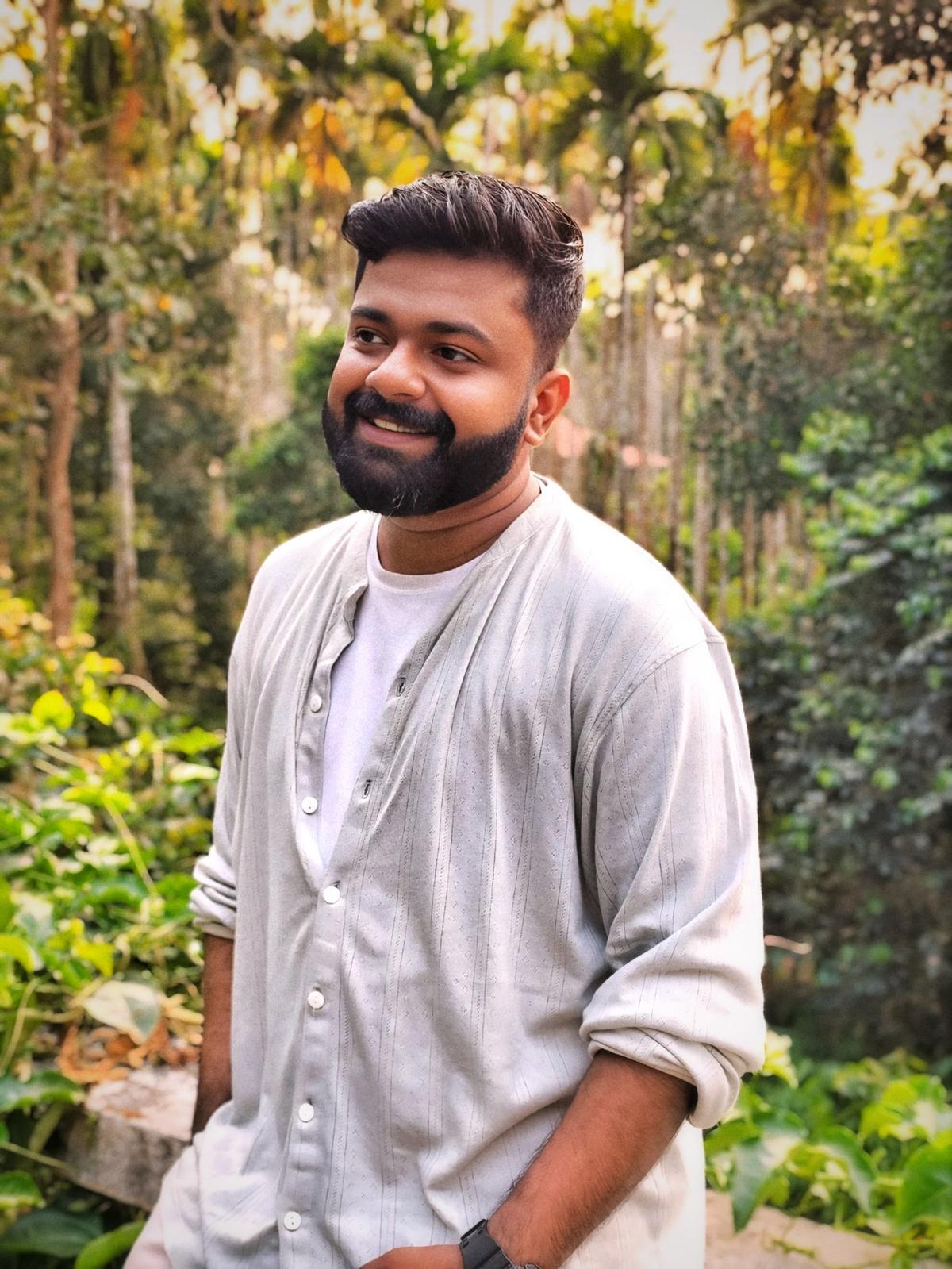
Bahul Ramesh, who joined the list of cinematographers-cum-scriptwriters in Malayalam cinema with Kishkindha Kaandam, the acclaimed slow-burning thriller by Dinjith Ayyathan, is back again as scenarist with the second season of the web series, Kerala Crime Files: The Search for CPO Ambili Raju. Directed by Ahammed Khabeer, the series is being discussed for its taut screenplay, nuanced character arcs and novel themes.
The action is set in the fictitious Kaniyarvila police station limits in Thiruvananthapuram. The officers posted there are being transferred because of their alleged nexus with criminals. When, Ambili Raju (Indrans), one of the cops, goes missing, the newly-appointed officers, Circle Inspector Kurian (Lal) and Sub Inspector Noble (Arjun Radhakrishnan) and their team start the investigation, which eventually leads to shocking revelations about Ambili and his special bond with an ex-convict Ayyappan (Harisree Ashokan). But as the narrative move towards the climax, more truths emerge, eventually leading to apprehending the culprit.
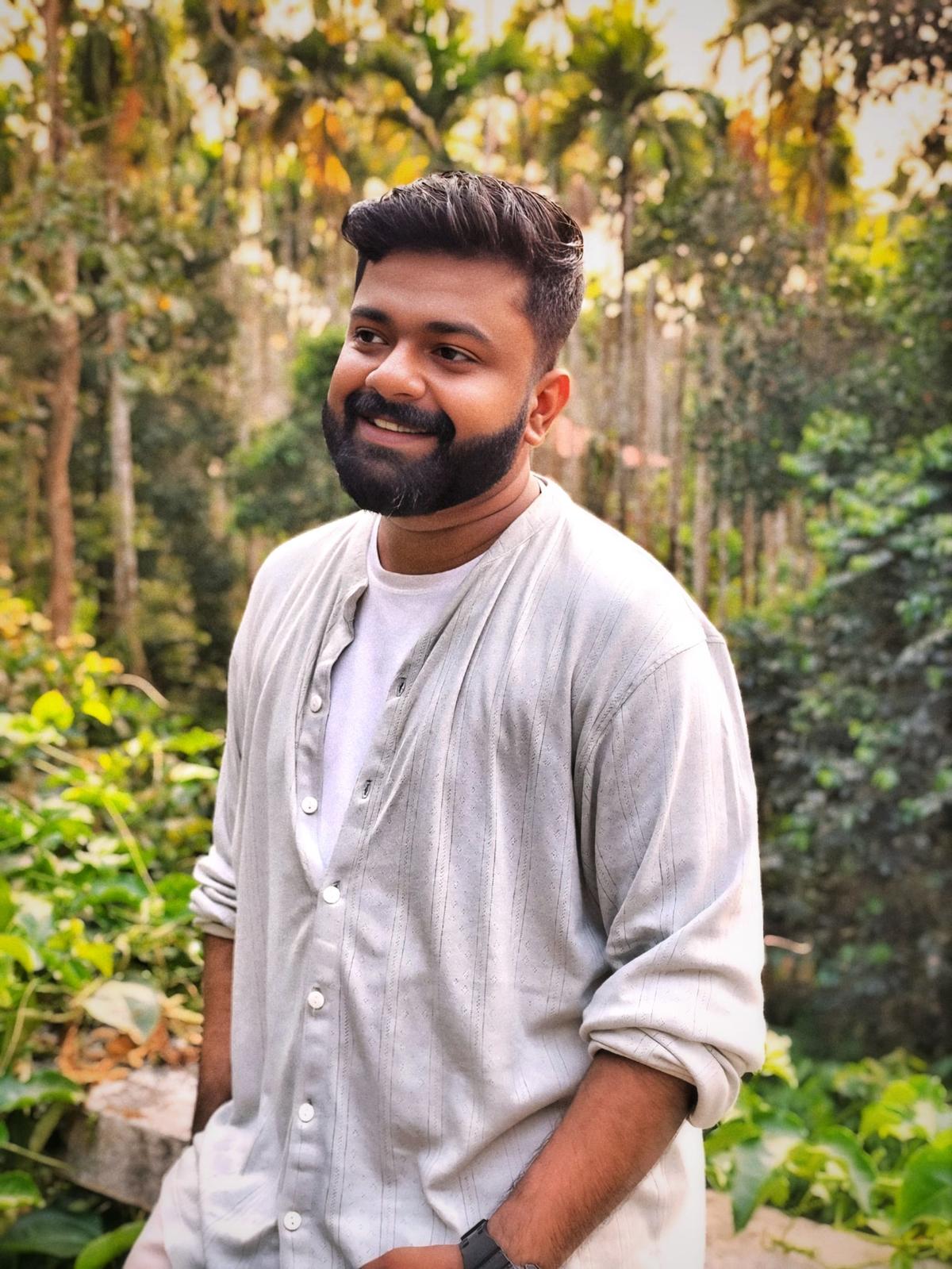
Cinematographer-writer Bahul Ramesh
| Photo Credit:
SPECIAL ARRANGEMENT
In a free-wheeling conversation with MetroPlus, Bahul says that he did not put pressure on himself thinking it was the second season of a successful show. “Ahammed ikka (Ahammed Khabeer, director of both seasons of KCF) contacted me in September 2023 asking if we could work on the new season. I had just finished Kishkindha Kaandam. He had only a month to pitch the story idea to the streaming platform. It is difficult for me to arrive at a thread just like that, my stories usually develop only once I start writing. I also wanted to give Ahammed enough time to find another story/writer if my idea did not work. However, he was confident and his only request was to include a few characters from the first season so that the viewers are reminded of the franchise,” Bahul says.
Bahul became friends with Ahammed at LV Prasad College of Media Studies, Chennai, where he studied cinematography and Ahammed had done an internship. “Even though he had interned much before I joined, we met through mutual friends. I looked forward to working with him, irrespective of the format or my designation. Jithin Stanislaus, the series’ DOP, is also a senior,” he says.
The writing for KCF did not involve a lot of research as many would think. “I have put down the basic things I know, corroborated by what I read in the newspapers, saw on social media, or heard from others. There was no reference for the police characters. Once I finished the script, I fact-checked with experts and consulted a police officer who had helped Ahammed ikka in the first season. It was he who gave us the term passport adichu kitti, a phrase that the police use for transfer orders.”
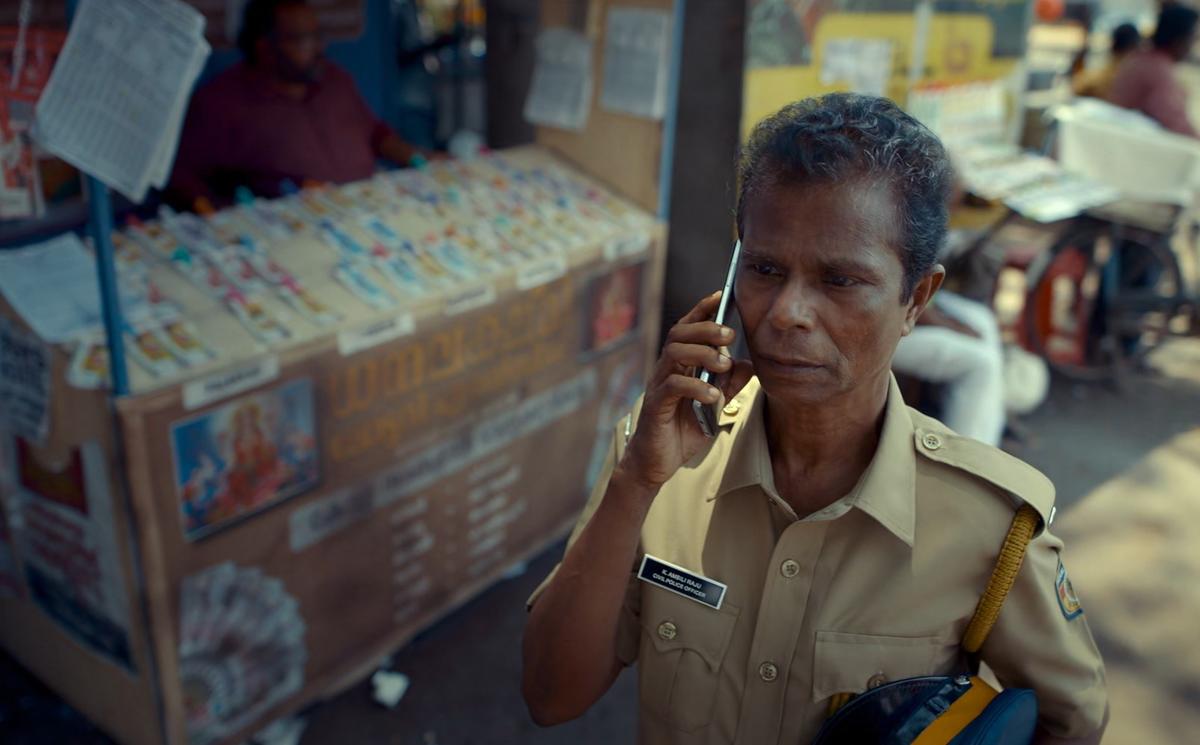
Indrans in the second season of the web series, Kerala Crime Files
| Photo Credit:
SPECIAL ARRANGEMENT
Bahul’s expertise, when it comes to character development, is on show in KCF as it was in Kishkindha Kaandam. The way he peels layers of the characters is a mainstay of the story. However, Bahul stresses that it is not deliberate. “I don’t design my characters. The focus is on writing original dialogues and when I do that, the layers show as a byproduct of the process. I don’t finalise the story and then write. The narrative develops as I work scene by scene,” he explains.
In the context he mentions the scene where Ambili asks his daughter to go to Ayyappan’s house and enquire about him. “Her reluctance to go there hints at tension between the two characters. At the same time, I did not want the daughter’s character to be one-dimensional. It was only after establishing this premise that I worked out the relation between Ambili and Ayyappan.”
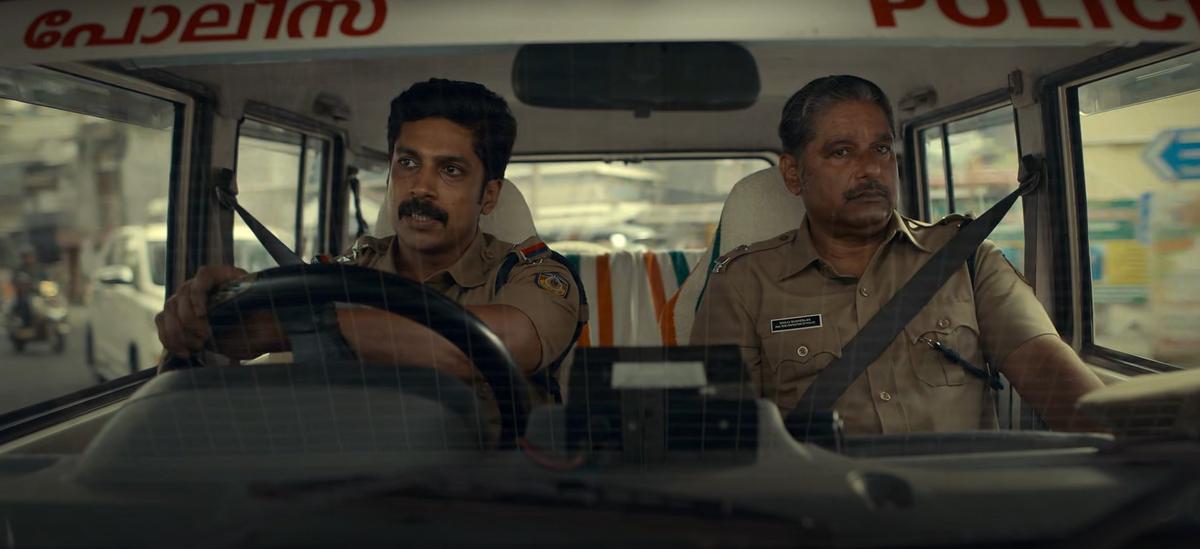
Arjun Radhakrishnan and Suresh Kumar in a still from the web series, Kerala Crime Files Season 2
| Photo Credit:
SPECIAL ARRANGEMENT
Bahul stresses that he was not concerned about adapting his writing to the web series format, especially arriving at a cliffhanger after each episode. “I didn’t follow that template. I wanted to keep it organic, without gimmicks. It was about pushing the envelope and arriving at a situation naturally, as I travelled with my characters.”
In fact, he had “an interesting way” to fix the duration of each episode. “Ahammed ikka said that five episodes could be of 30 minutes, and the last one slightly longer. So, once I wrote the 40-page first episode, I gave it to my father to read. It took him 25 minutes and I gauged that it could be the approximate running time of that episode. That is how I got the meter to anchor my syntax. As I wrote each episode, I took it towards a conclusion, keeping that duration in mind, without twists or cliffhangers. Thus, each episode had an organic ending.”
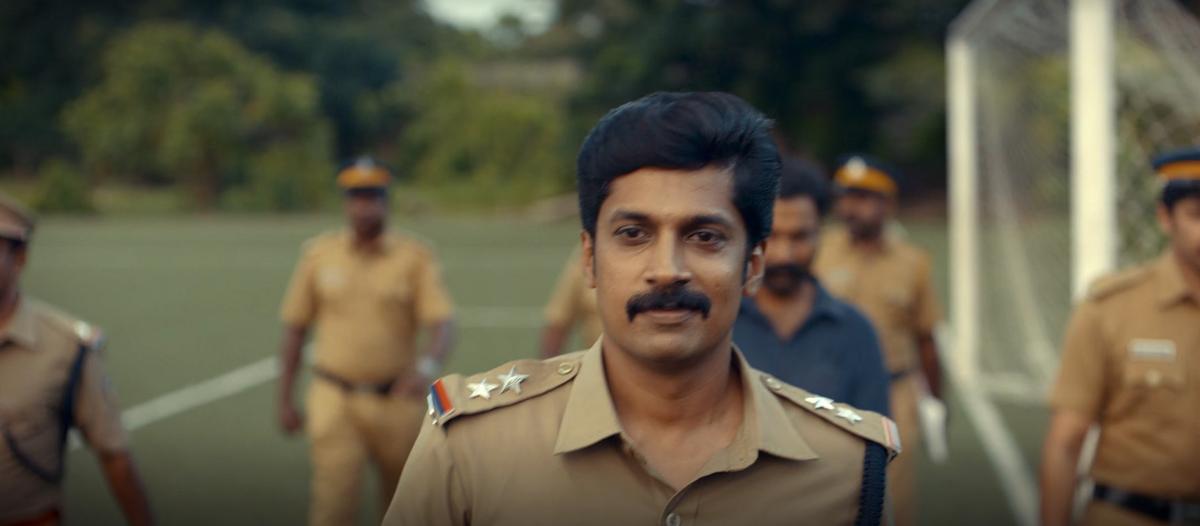
Arjun Radhakrishnan in a still from the web series, Kerala Crime Files Season 2
| Photo Credit:
SPECIAL ARRANGEMENT
Now that deliberations are on about the ‘show, don’t tell’ approach in the series, especially the climax, Bahul avers that he did not want to take the obvious route. “It does not have an open ending. We have laid to rest all doubts, without stating the obvious. The answers lie in the final scene when Noble smiles, seeing the pack of dogs, thus declaring that his speculations were right.”
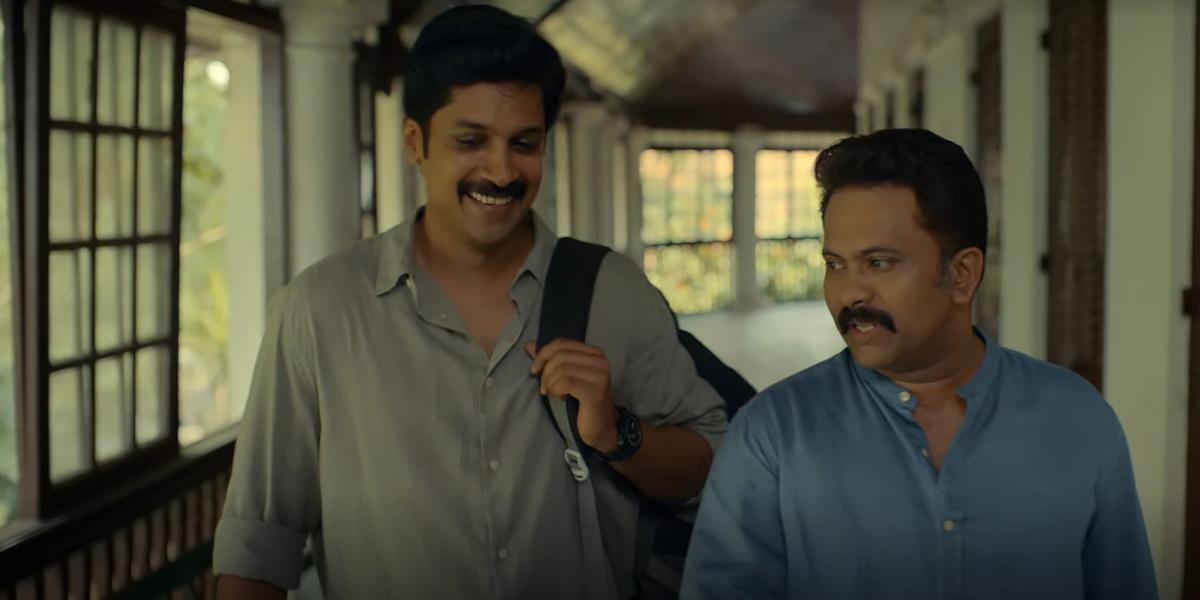
Arjun Radhakrishnan and Aju Varghese in a still from the web series, Kerala Crime Files Season 2
| Photo Credit:
SPECIAL ARRANGEMENT
Interestingly dogs are integral to the storyline and his exploration of the human-animal bond is heart warming. “Their roles became important as I started working on the script. We had an expert who helped us execute scenes with the dogs. It was, obviously, difficult to make them act on demand. The director and DOP were patient enough to get the right shot.”

About featuring a dog with a cognitive disability, Bahul says that he came across a scenario at a friend’s house. “They had a visually impaired dog. It was disturbing. But that’s where I got the idea that a dog with a disability would be an interesting material for the series,” he says.
Becoming a writer was a dream Bahul chose to keep on the back burner. “I knew that scripting films was a gamble. Your story could get rejected and if chosen you don’t know when it would become a film. So I decided to focus on cinematography, settle in that space, and then start writing scripts.”
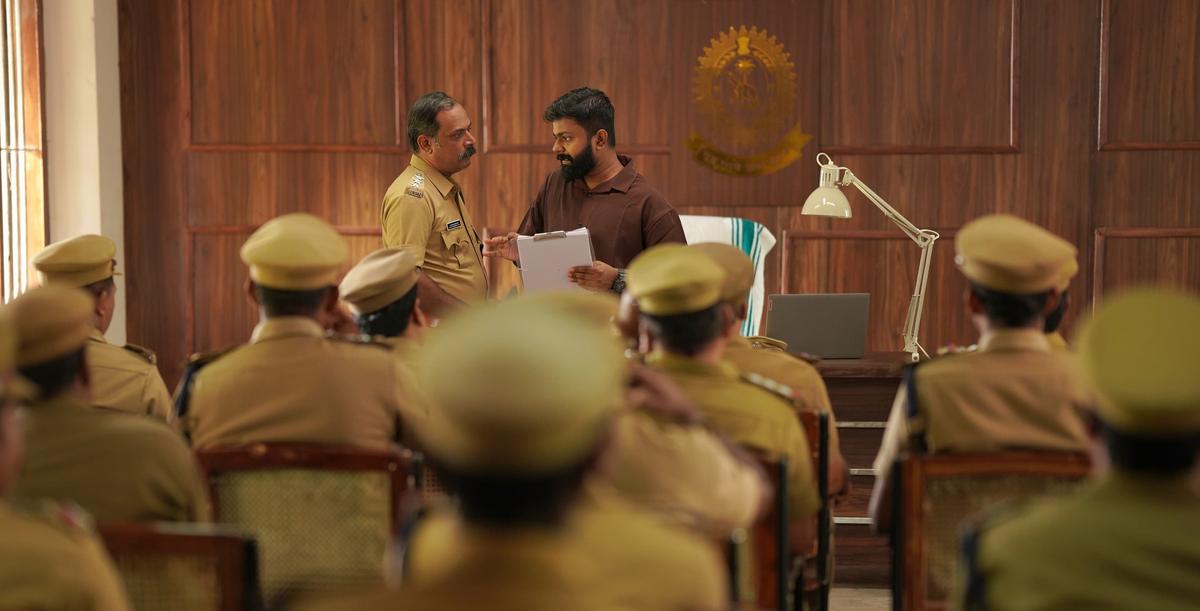
Bahul Ramesh with Bilas Ramachandran on the set of Kerala Crime Files Season 2
| Photo Credit:
SPECIAL ARRANGEMENT
That opportunity came during during the lockdown, “since there was nothing else to do. My first script was based on the theme of lockdown which Dinjith Ayyathan was keen to make into a film. That’s when I came up with the story of Kishkindha Kaandam and he felt that we should make that first.”
Bahul points out that he does not lose sleep over whether people like his scripts or not. “I follow my instincts, my intuitions. I am open to correcting my mistakes. This attitude comes from parental conditioning. Thanks to my parents who never forced me to study. I have never been under pressure to perform well. They were happy with whatever marks I got. Once, on the eve of my Plus 1 exam, I was so nervous that I thought I would fail. I told my father this and asked if we could go watch a film. He was game and we watched the late evening show of In Ghost House Inn, which was the only movie playing in theatres then!”
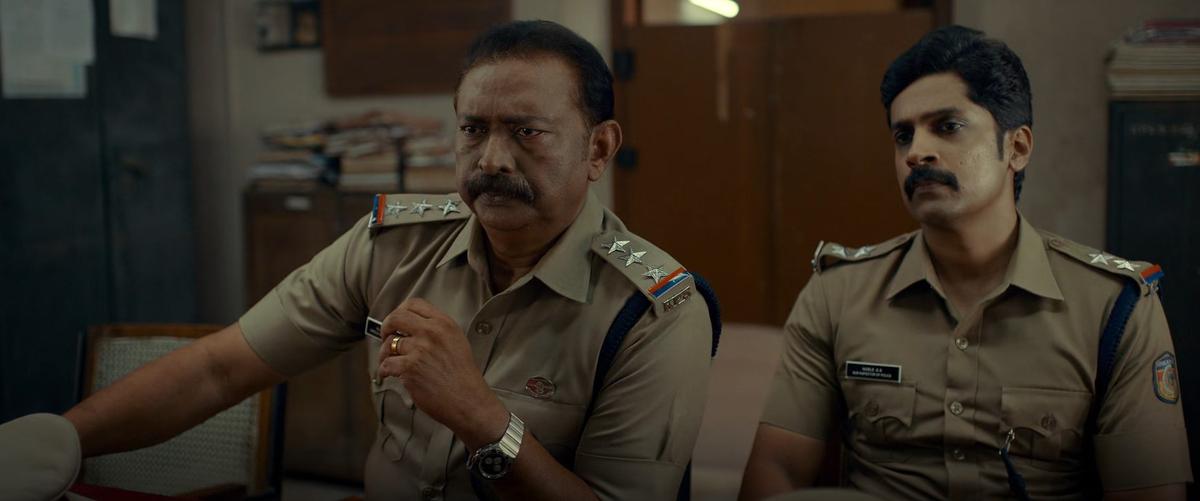
Lal and Arjun Radhakrishnan in a scene from Kerala Crime Files Season 2
| Photo Credit:
SPECIAL ARRANGEMENT
He is open to criticism as well. “I want people to express their opinion, be it negative or positive. It is encouraging that they are at least thinking about it. I believe that such observations help in the growth of the content. Sometimes they surprise me with findings that I had never thought of. It is motivating when someone points out that I have tried to do something different. I never wanted to fall back on something that was easy, convenient or formulaic.”
Meanwhile, he has finished the shoot for Dinjith’s next movie, starring Sandeep Pradeep, due for release later this year.
Published – June 25, 2025 12:28 pm IST






